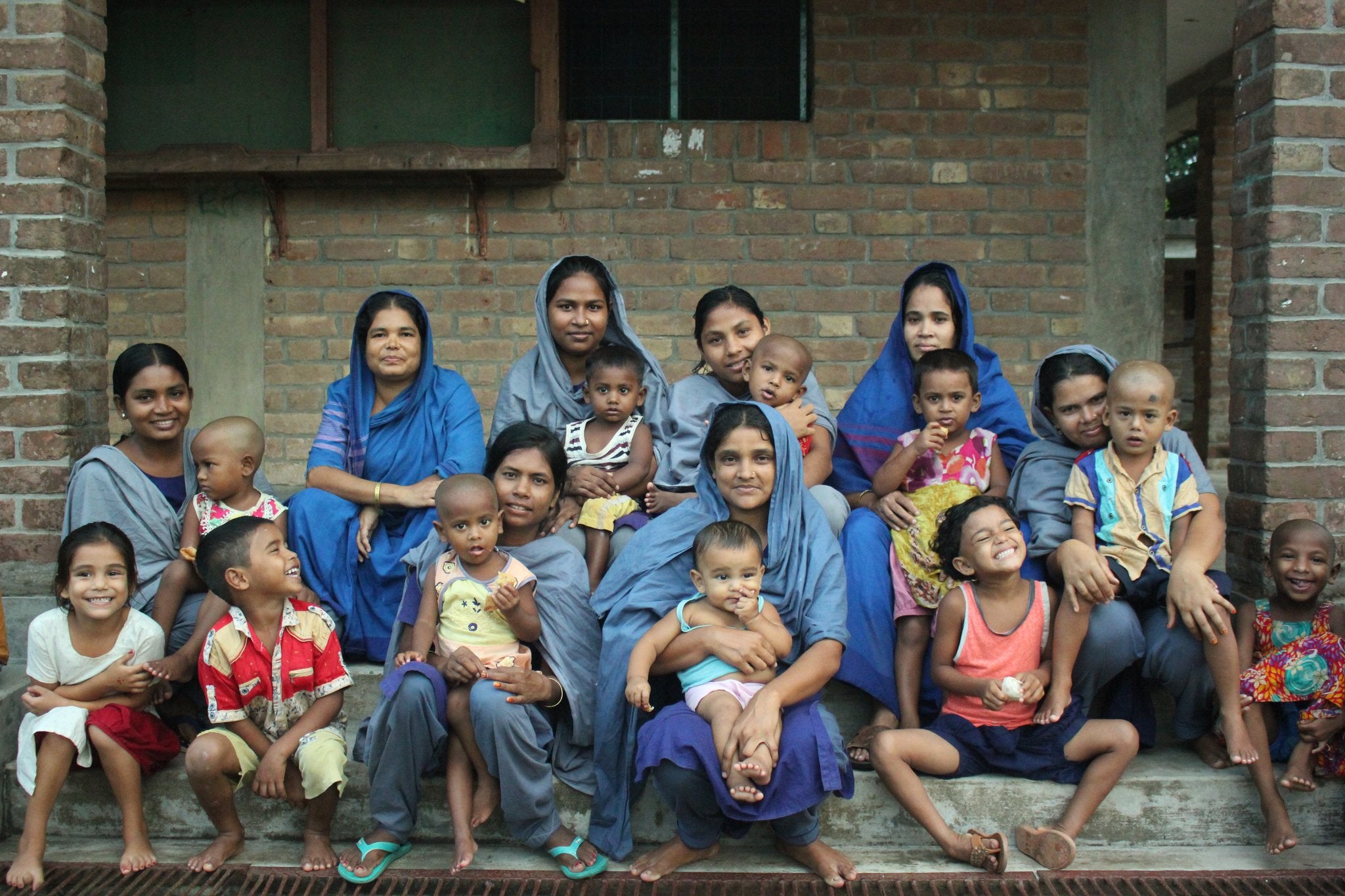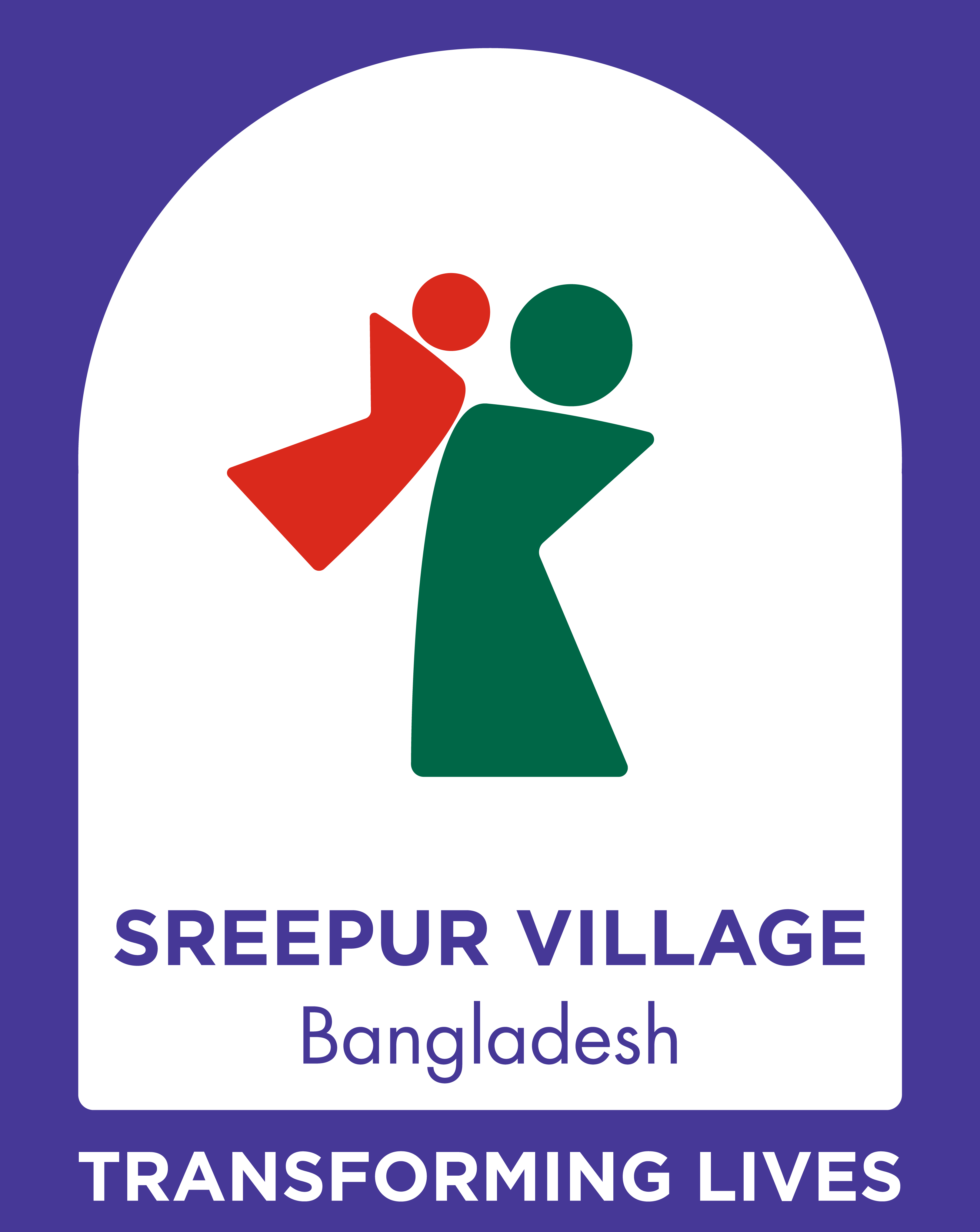

News
Volunteers Week
As today marks the start of Volunteers Week, this is not just an opportunity for us to thank all of our volunteers but it is also a chance for us to share with you some of the stories of how our volunteers have got involved and helped The Sreepur Village charity.
Dorothy has supported The Sreepur Village, Bangladesh almost from it' s inception. As a British Airways long haul stewardess she was aware of Pat Kerr’s vision for a new village where mothers and children could live together and babies could not be taken away from their mothers to go into an orphanage, which would leave both parties damaged.
Ramadan in The Sreepur Village 2018
The holy month of Ramadan started a week ago in Bangladesh which witnesses, for one month, devout Muslims observing, dawn-to-dusk, a fast for self-purification and divine blessings. The scenery of Ramadan in Sreepur Village is distinguished. The mothers and children are dedicated to their fasting and while the mothers training hour has changed a little due to prayer, everyone still attends all the regular activities.
Moving On - Life After The Sreepur Village
At regular intervals, and for three months, a group (12-15) of our mothers and their families move to a pre-rehabilitation centre, known as the half-way house as a reintegration step into the community. Earlier this month, 15 mothers went to the half-way house and the local community. They began their lives in a new and independent way.
The mothers are also currently completing their training in sewing, garment training, small business shop and bamboo weaving and various other training schemes. We recruit our mothers in such training schemes so that they can earn a livelihood immediately after leaving The Sreepur Village and completing their three-month period in the rehabilitation centre
#NationalSmileMonth
Foster Care Fortnight
As part of #FosterFortnight, The Sreepur Village is a mother and child-focused organisation, in which every activity that is carried out is for the development of the 500 children and 200 mothers. At The Sreepur Village, whilst the vast majority of children have mothers, some have been abandoned or come from a life of trafficking.
Childhood is a period where parents are essential firstly, for the child’s survival and existence and then later for their full physical and mental growth. Emotionally, a child needs love and affection and the feeling and knowing that they are wanted and accepted in the family and community where they can have some sense of security and continuity.
Tommy Miah’s Cauli Balti Recipe - National Vegetarian Week
As part of #NationalVegetarianWeek we are delighted to share with you one of Tommy Miah's fantastic vegetarian recipes.
Not only is Tommy Miah a Bangladeshi-born British chef and owner of the Raj restaurant in Edinburgh but he is also ambassador of The Sreepur Village charity.
World Fair Trade Day
“Every girl who studies in Bangladesh is financially dependent on somebody else, I think that is the real barrier to women’s education and empowerment. This observation has come to my mind over the past five years. How? I will tell you.” says Mahfuza one of the producers of Sreepur Village Trade.
International Workers Day - Shabnam's Story
National Gardening Week
As this week is National Gardening Week, The Sreepur Village would like to highlight the training they offer so that over 200 mothers, in the future, can live self-sufficiently, confidently knowing that their children will not starve.
For the three meals a day that The Sreepur Village provides, a small piece of farm land in the village has been partitioned into different sections for growing vegetables, 60% of which is dedicated to feeding our mothers and children fresh vegetables and, sometimes, salad.
World Immunisation Week
World Immunisation Week, 24th-30th April, is observed every year to raise awareness for greater action on immunisation around the world. Immunisation has been recognised as one of the world’s most successful and cost-effective health interventions, which is known to save millions of lives. In spite of that, there are over 19 million unvaccinated or under-vaccinated children in the world, according to the World Health Organisation (WHO).
Immunisation can protect against 25 different infectious agents or diseases, from infancy to old age, including diphtheria, measles, mumps, pertussis, and tetanus while some of the diseases eradicated by vaccines include smallpox, rinderpest, polio and malaria.
Remembering Rana Plaza - 5th Anniversary
English Language Day
Celebrating Pohela Boishakh
Pohela Boishakh, the first day of Bengali New Year, was celebrated in The Sreepur Village with traditional festivities and enthusiasm. Every year during Pohela Boishakh, the country’s biggest cultural festival, people of all walks of life, especially children and teenagers, come out at daybreak wearing traditional dresses eager to celebrate their most cultural day. The festivals of Pohela Boishakh have become an integral part of Bengladesh since it began over six centuries ago. Mughal Emperor Akbar introduced the Bangla calendar in 1556, as part of the Georgian Calendar, in a bid to streamline the timing of land tax collection. However, true to their centuries-old tradition, people from all walks of life of the country welcome the Bengali New Year 1425, with new hopes and aspirations for a better and peaceful ye
Preparations Continue for Pohela Boishakh
Watch our video to see how The Sreepur Village prepares for Pohela Boishakh (Bengali New Year)
The Preparations of Pohela Boishakh have begun...
Candle Making by A Mother of The Sreepur Village
Earlier in 2017, The Sreepur Village began a ‘Candle Making’ training programme for the mothers, to help empower them as entrepreneurs. A small business idea, such as this, helps the mothers to support their families as they can make candles in their free time and earn an additional income, a driving force that never existed before.
World Health Day
International Day of Sport for Development and Peace
The contribution of sport to education, human development, healthy lifestyles and a peaceful world is of utmost importance and here in The Sreepur Village, we commit ourselves to the development of our children through various sports and physical exercises.
In the Sreepur Village school, we provide a specialised sports instructor who teaches the children a variety of sports every day. Jesmin has a degree in Physical Education and has experience in children’s sports and physical exercise.
















